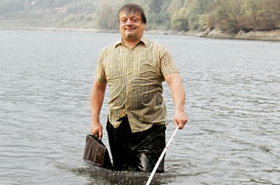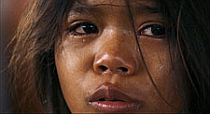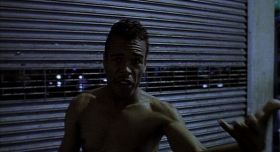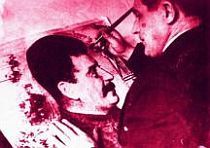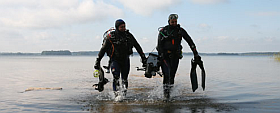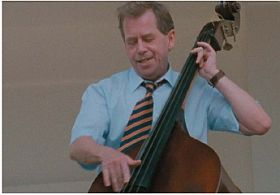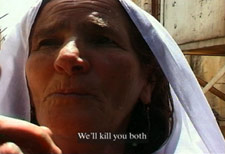


7BEST 7
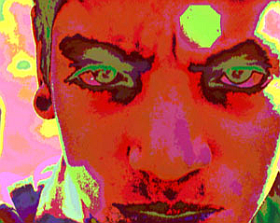
Så er vi i gang med sidste dag af FOF’s og Filmkommentaren.dk’s festival med Tue Steen Müller. Her et sidste citat fra hans katalogtekst til den sidste film, “Black Sun af Gary Tarn:
… Jo, “Black Sun” er noget ganske særligt, et one-man-work af Gary Tarn, hvis debutfilm det er. Han kommer fra musikken og besluttede sig for at skifte spor efter mange år i reklamefilmbranchen som leverandør af musikbidder til hvadsomhelst. Penge havde han tjent og dem brugte han så på at lave “Black Sun”. Han købte sig et 16mm stumkamera, lærte hurtigt hvordan det skulle betjenes – og fotograferede, klippede og producerede filmen fra ende til anden.
… sammen med Hugues de Montalembert, filmens subjekt, manden der i 1978 blev groft overfaldet i New York med blindhed som resultat. Tarn havde læst den bog som Montalembert havde skrevet om sit nye liv som blind, var fascineret af den og opsøgte ham i Paris, hvor dage blev brugt på at optage det interview, som danner den fortællemæssige bund for filmen.
Tarn tog hjem, redigerede interviewene så de fremstod som én lang monolog og tog derpå fat på at lave billeder, der kunne bruges til teksten. Og til den musik som han derefter komponerede.
For “normale” dokumentarister lyder det her som en måde, hvorpå man ikke laver film! Selv understreger Gary Tarn (der er interviews med ham på YouTube) at alt for få dokumentarfilm er “cinematic”, hvilket (min kommentar) ikke er så underlig en bemærkning fra en mand, som lever i England, hvor BBC og C4 har dikteret den filmiske stil for dokumentaren med kommentar, interviews osv.
Fortællingen, bragt frem af Montalemberts magiske franske accent tilført det engelske sprog. Visualiseringen, Tarns ekstreme fugleperspektiver, slørede billeder, abstrakte former, farvefyldte realoptagelser, vredne perspektiver, fra hele verden, New York først og fremmest, men også Indonesien, Tibet, lufthavne, gader, nærbilleder af mennesker osv. osv. Og den underliggende musik, der får én til at dvæle ved nogle billeder, gå ind i dem, lave egne historier, altså på en måde forlade filmen for en stund for så at komme tilbage til den blinde mand, den tidligere maler og filminstruktør, nu forfatter, tilbage til den intensitet, som hans stemme rummer, når den taler om den verden som han lever i nu, hvor hjernen konstant producerer billeder, nogle gange stærkt erotiske billeder som det kan være svært at have med at gøre når han taler med andre mennesker om hvadsomhelst.
Gary Tarn: “Black Sun”, UK 2008, 75 min. På FOF filmfestival i Randers. Tue Steen Müller: 7BEST – et essay om syv film, FOF-Randers, 2009, 32 sider. Kan erhverves på festivalen eller bestilles på FOF til@fof-randers.dk
